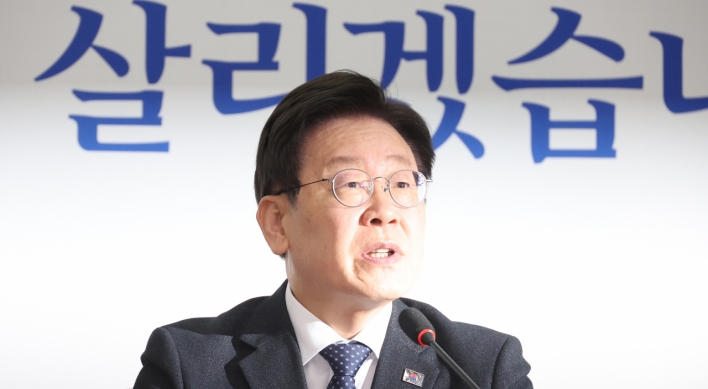Record number of young Koreans prepare for job exams amid pandemic
By YonhapPublished : July 20, 2021 - 14:01

The number of young South Koreans preparing to take exams for public jobs and professional licenses hit a record high in May as the job market remained sluggish amid the pandemic, data showed Tuesday.
The data released by Statistics Korea showed that 859,000, or 19.1 percent of 4.49 million economically inactive people aged 15-29, prepared for exams to land jobs in May, up 55,000 from a year earlier. The proportion was also up from 17.1 percentage points last year.
It marked the largest number of young people since the statistics agency began compiling related data in 2006. The May proportion also hit a record high.
Of them, 32.4 percent were preparing for state exams to become low-ranking public servants, up 4.1 percentage points from a year earlier. The data showed 22.2 percent said they prepared for exams to land jobs at private companies.
For civil service exams for senior posts, 10.5 percent spent their time for exam preparations, up 2.4 percentage points from the previous year.
In South Korea, many young people favor civil service posts due mainly to greater job security amid the prolonged economic slowdown.
The country reported job additions for the fourth straight month in June amid an economic recovery, but many young people still found it difficult to land jobs.
Young adults needed an average of 10.1 months to find their first jobs after graduation in May, slightly up from 10 months a year earlier.
The agency said 37 percent of those hired earned between 1.5 million won ($1,305) and 2 million won per month in their first job, while 23.2 percent received between 2 million won and 3 million won.
In May, the number of employed young adults reached 3.91 million, up 138,000 from a year earlier. That of jobless young people declined 24,000 on-year to 402,000. (Yonhap)
The data released by Statistics Korea showed that 859,000, or 19.1 percent of 4.49 million economically inactive people aged 15-29, prepared for exams to land jobs in May, up 55,000 from a year earlier. The proportion was also up from 17.1 percentage points last year.
It marked the largest number of young people since the statistics agency began compiling related data in 2006. The May proportion also hit a record high.
Of them, 32.4 percent were preparing for state exams to become low-ranking public servants, up 4.1 percentage points from a year earlier. The data showed 22.2 percent said they prepared for exams to land jobs at private companies.
For civil service exams for senior posts, 10.5 percent spent their time for exam preparations, up 2.4 percentage points from the previous year.
In South Korea, many young people favor civil service posts due mainly to greater job security amid the prolonged economic slowdown.
The country reported job additions for the fourth straight month in June amid an economic recovery, but many young people still found it difficult to land jobs.
Young adults needed an average of 10.1 months to find their first jobs after graduation in May, slightly up from 10 months a year earlier.
The agency said 37 percent of those hired earned between 1.5 million won ($1,305) and 2 million won per month in their first job, while 23.2 percent received between 2 million won and 3 million won.
In May, the number of employed young adults reached 3.91 million, up 138,000 from a year earlier. That of jobless young people declined 24,000 on-year to 402,000. (Yonhap)








![[Hello India] Hyundai Motor vows to boost 'clean mobility' in India](http://res.heraldm.com/phpwas/restmb_idxmake.php?idx=644&simg=/content/image/2024/04/25/20240425050672_0.jpg&u=)










